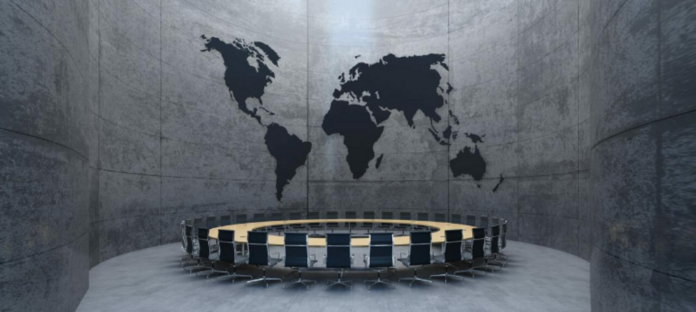Why is everyone concerned about the WHO?
Over the past two years you’ve probably heard about the attempted WHO power grab. Here’s everything you need to know to understand the status today:
Overview:
- The build-out of a massive and expensive global biosecurity system is underway, allegedly to improve our preparedness for future pandemics or biological terrorism. In aid of this agenda two documents are being prepared through the WHO: a broad series of amendments to the existing International Health Regulations (2005) (IHR) and a proposed, entirely new pandemic treaty.
- A Pandemic Fund a.k.a. financial intermediary fund to aid preparedness worldwide has been established by the World Bank and WHO.
- Multiple names have been used for the new treaty as new drafts are produced, such as: Pandemic Treaty, WHO CA+, Bureau Text, Pandemic Accord, and Pandemic Agreement.
- Negotiations for these documents are being held in secret. The latest available draft of the IHR amendments is from February 6th, 2023.
- The latest Pandemic Treaty draft is from October 30th, 2023.
- Both the amendments and treaty are on a deadline to be considered for adoption at the 77th annual World Health Assembly meeting in May 2024.
- WHO’s principal attorney Steven Solomon has announced that he crafted a legal fig leaf to avoid making the draft amendments public by January 2024, as required by the WHO Constitution.
How Would these Drafts Become International Law?
- A treaty requires a two-thirds vote of the World Health Assembly’s 194 member states to be adopted and is binding only for States that have ratified or accepted it (Article 19 and 20, WHO Constitution). However, it could be enacted into force in the US by a simple signature, without Senate ratification. [See CRS report, “US proposals to Amend the International Health Regulations.”]
- The IHRs and any amendments thereto are adopted by simple majority, and become binding to all WHO Member States, unless a state has rejected or made reservations to them within predefined timeframes (Articles 21 and 22, WHO Constitution; Rule 72, Rules of procedures of the World Health Assembly).
- Last year, however, amendments to 5 articles of the IHRs were considered in opaque committee meetings during the 75th annual meeting, and then adopted by consensus without a formal vote. This process makes it harder to blame individual diplomats for their votes.
- The current draft of the IHR Amendments would allow the Director-General of WHO or Regional Directors to declare a Public Health Emergency of International Concern (PHEIC), or the potential for one, without meeting any specific criteria (Article 12). The WHO would then assume management of the PHEIC and issue binding directives to concerned States.
- PHEICS and potential PHEICs could be declared without the agreement of the concerned State or States.
- WHO’s unelected officials (Director-General, Regional Directors, technical staff) could dictate measures including quarantines, testing and vaccination requirements, lockdowns, border closures, etc.
- WHO officials would not be accountable for their decisions and have diplomatic immunity.
Activist Post is Google-Free — We Need Your Support
Contribute Just $1 Per Month at Patreon or SubscribeStar
What are Some Specific Problems with the WHO’s Proposed Amendments?
- Article 3 of the proposed IHR amendments removes protections for human rights:
- Struck from the IHR is the crucial guarantee of human rights as a foundation of public health: “The implementation of these Regulations shall be with full respect for the dignity, human rights and fundamental freedoms of persons…”
- This has been replaced with the following legally meaningless phrase: “based on the principles of equity, inclusivity, coherence…”
- Proposed article 43.4 of the IHR notes that the WHO could ban the use of certain medications or other measures during a pandemic, since its ‘recommendations’ would be binding:
- “WHO shall make recommendations to the State Party concerned to modify or rescind the application of the additional health measures in case of finding such measures as disproportionate or excessive. The Director General shall convene an Emergency Committee for the purposes of this paragraph.”
- States’ obligations in the proposed IHR Amendments would include:
- Conducting extensive biological surveillance of microorganisms and people (Article 5);
- Monitoring mainstream and social media and to censor “false and unreliable information” regarding WHO-designated public health threats (Article 44.1(h)(new));
- Taking medical supplies from one State for use by other States as determined by the WHO (New Article 13A);
- Giving up intellectual property for use by other States or third parties (New Article 13A);
- Transferring genetic sequence data for “pathogens capable of causing pandemics and epidemics or other high-risk situations” to other Nations or third parties, despite the risks this entails (Article 44.1(f) (new)).
What are Problems with the Proposed Pandemic Treaty?
All the Pandemic Treaty drafts (as well as the proposed Amendments to the IHR) produced so far are based on a set of false assumptions. These include the following:
For the rest of this article please go to source link below.
(Source: activistpost.com; November 14, 2023; https://tinyurl.com/yljcy9q9)

